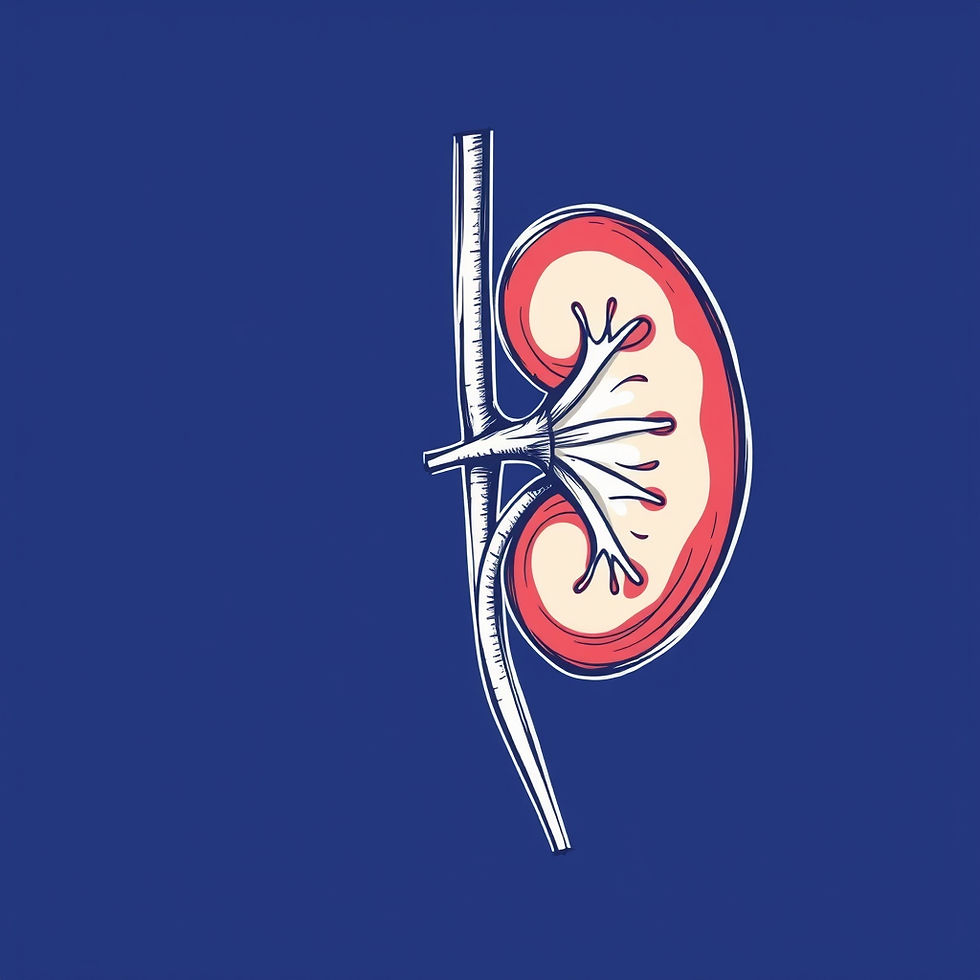Metabolic Health: Tips for Improved Well-Being
- Tessa Novick
- Aug 20, 2025
- 4 min read
In today's fast-paced world, maintaining good metabolic health is more important than ever. Our metabolism affects how our bodies convert food into energy, impacting everything from weight management to overall well-being. Many people struggle with metabolic issues, often feeling overwhelmed by conflicting information about diet and exercise. This blog post aims to simplify the concept of metabolic health and provide practical tips for improvement.
Metabolic health is not just about weight. It encompasses various factors, including blood sugar levels, cholesterol, and blood pressure. Understanding these elements can help you make informed choices that promote better health.
Understanding Metabolism
Metabolism refers to the chemical processes that occur within our bodies to maintain life. It includes two main functions: catabolism, which breaks down molecules to produce energy, and anabolism, which uses energy to build and repair tissues.
A healthy metabolism is crucial for:
Energy production: It helps convert food into energy.
Weight management: A well-functioning metabolism can help maintain a healthy weight.
Hormonal balance: Metabolism influences hormone levels, which affect mood and energy.
When metabolism is disrupted, it can lead to various health issues, including obesity, diabetes, and heart disease.
The Role of Nutrition
Nutrition plays a vital role in metabolic health. What you eat directly impacts how your body functions. Here are some tips to improve your nutrition for better metabolic health:
1. Focus on Whole Foods
Whole foods are minimally processed and rich in nutrients. They include fruits, vegetables, whole grains, lean proteins, and healthy fats.
Fruits and Vegetables: Aim for a variety of colors on your plate. Each color represents different nutrients that support metabolic health.
Whole Grains: Choose brown rice, quinoa, and whole wheat bread over refined grains. They provide more fiber and nutrients.
Lean Proteins: Incorporate sources like chicken, fish, beans, and legumes. Protein helps build muscle, which can boost metabolism.
2. Stay Hydrated
Water is essential for metabolic processes. Dehydration can slow down your metabolism.
Drink Water: Aim for at least eight glasses a day. You can also include herbal teas and water-rich fruits and vegetables.
Limit Sugary Drinks: Sodas and energy drinks can spike blood sugar levels and contribute to weight gain.
3. Control Portion Sizes
Overeating can lead to weight gain and metabolic issues.
Use Smaller Plates: This can help control portion sizes and prevent overeating.
Listen to Your Body: Pay attention to hunger cues. Eat when you are hungry and stop when you are satisfied.
The Importance of Physical Activity
Regular physical activity is crucial for maintaining metabolic health. Exercise helps burn calories, build muscle, and improve overall well-being. Here are some tips to incorporate more movement into your life:
1. Find Activities You Enjoy
Exercise doesn't have to be a chore. Find activities that you enjoy, whether it's dancing, hiking, or swimming.
Mix It Up: Try different activities to keep things interesting. This can prevent boredom and help you stay motivated.
2. Incorporate Strength Training
Building muscle can boost your metabolism.
Lift Weights: Aim for strength training exercises at least twice a week. This can include bodyweight exercises like push-ups and squats.
Use Resistance Bands: These are great for home workouts and can help build strength without heavy weights.
3. Stay Active Throughout the Day
Look for opportunities to move more throughout your day.
Take the Stairs: Opt for stairs instead of elevators whenever possible.
Walk or Bike: If you can, walk or bike instead of driving for short trips.
Managing Stress
Stress can negatively impact metabolic health. When stressed, the body releases cortisol, which can lead to weight gain and other health issues. Here are some strategies to manage stress:
1. Practice Mindfulness
Mindfulness techniques can help reduce stress levels.
Meditation: Spend a few minutes each day meditating. This can help clear your mind and reduce anxiety.
Deep Breathing: Practice deep breathing exercises to calm your mind and body.
2. Get Enough Sleep
Sleep is essential for overall health, including metabolism.
Aim for 7-9 Hours: Prioritize sleep to help your body recover and function optimally.
Create a Sleep Routine: Go to bed and wake up at the same time each day to regulate your body's internal clock.
Regular Health Check-Ups
Regular check-ups can help monitor your metabolic health.
Blood Tests: These can check your cholesterol, blood sugar, and other important markers.
Consult a Professional: If you have concerns about your metabolic health, consider consulting a healthcare provider or a nutritionist.
Building a Support System
Having a support system can make a significant difference in your journey toward better metabolic health.
Join a Group: Consider joining a fitness class or a support group. This can provide motivation and accountability.
Share Your Goals: Talk to friends and family about your health goals. They can offer encouragement and support.
Conclusion: Your Path to Better Metabolic Health
Improving your metabolic health is a journey that requires commitment and effort. By focusing on nutrition, physical activity, stress management, and regular check-ups, you can take significant steps toward better well-being.
Remember, small changes can lead to big results. Start with one or two tips from this post and gradually incorporate more into your routine. Your body will thank you for it.




Comments